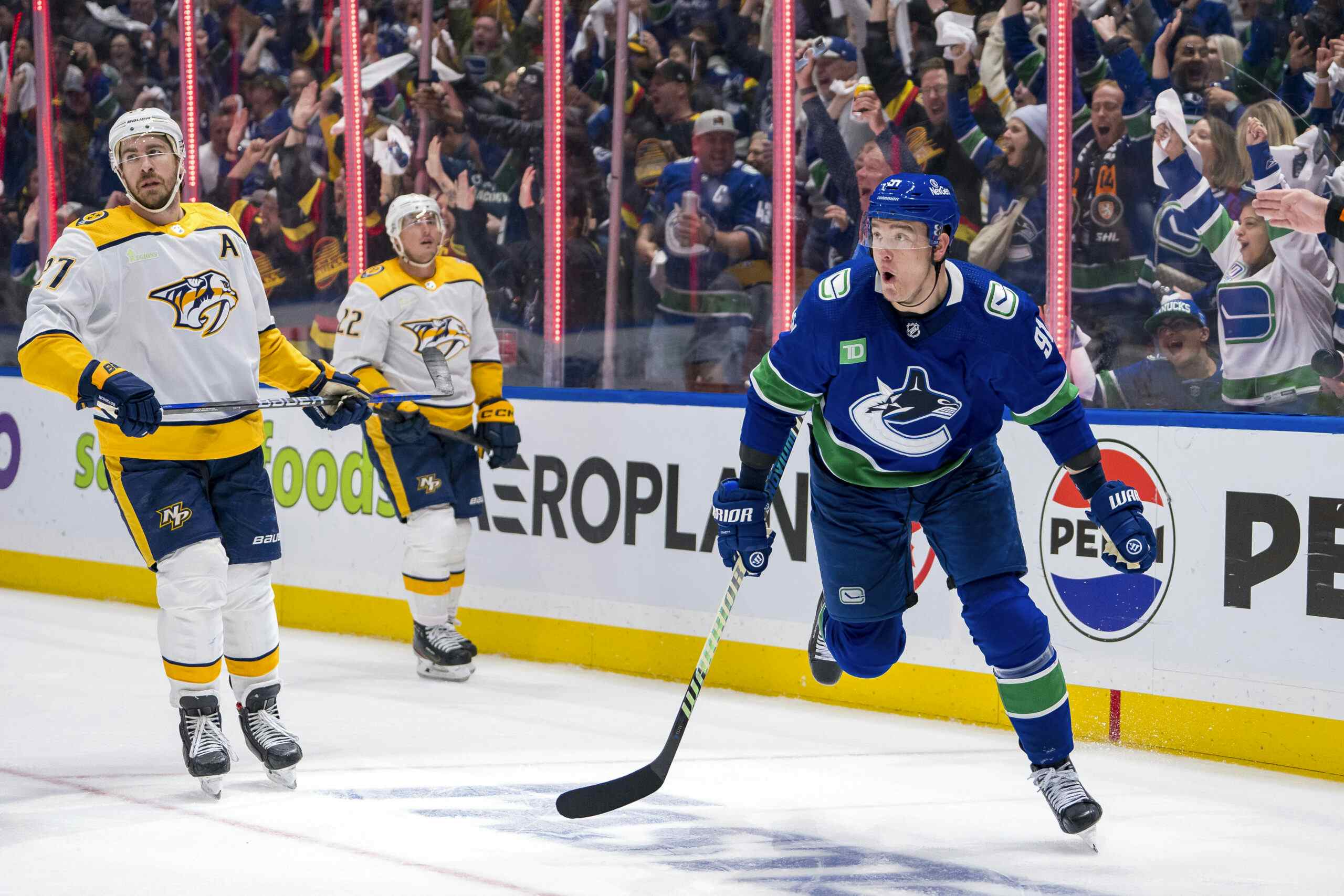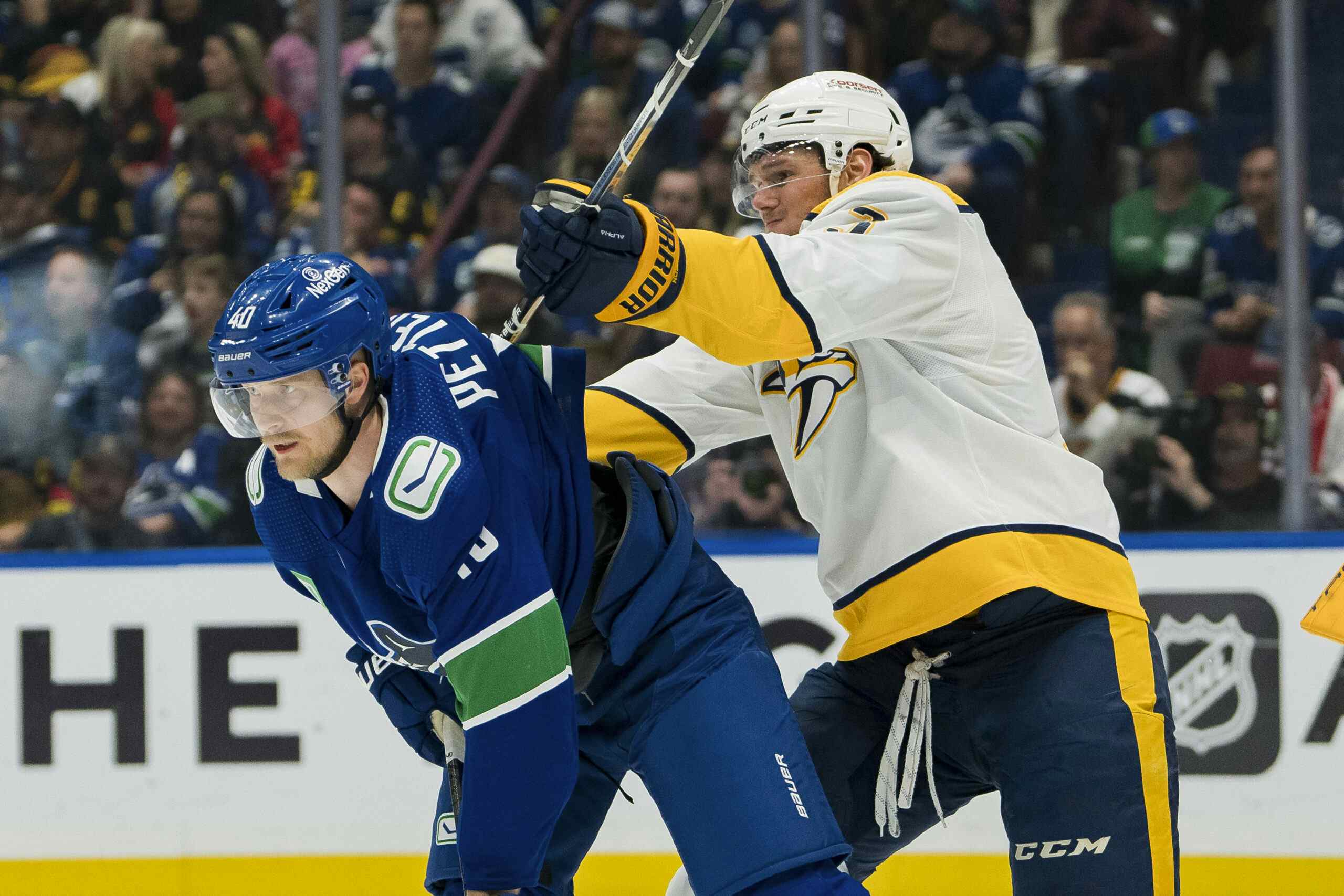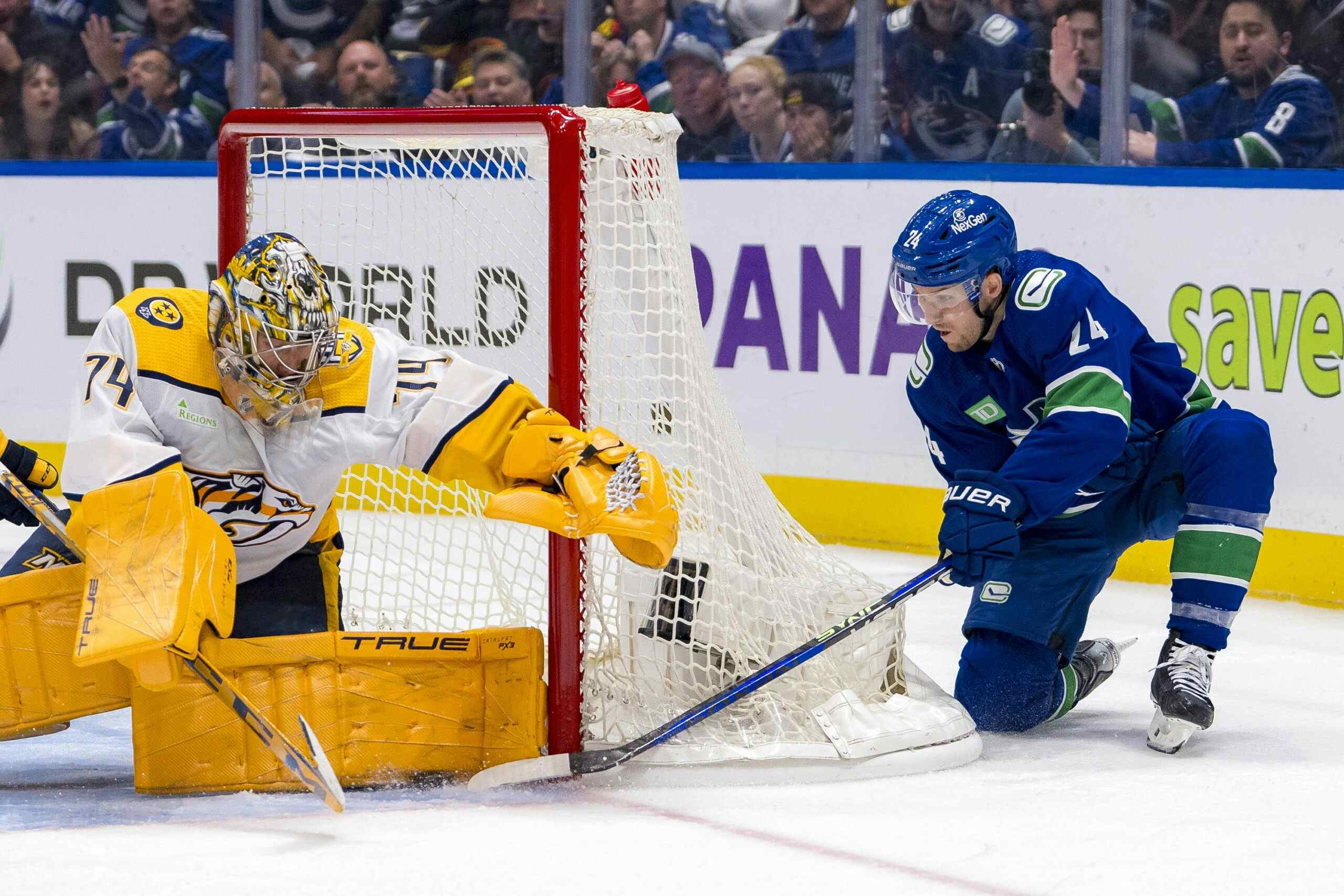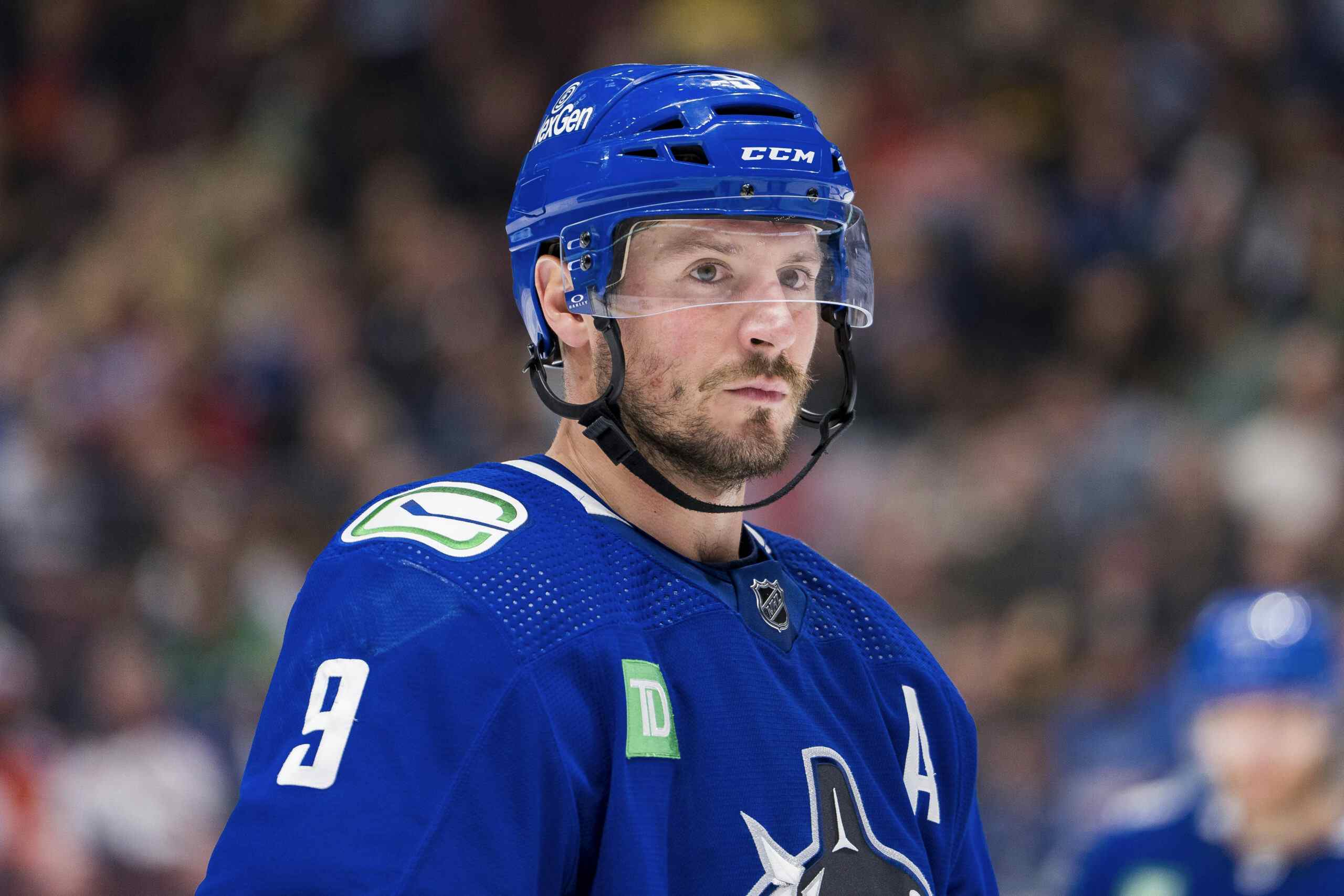Why the Vancouver Canucks should keep their best prospects OFF the Taxi Squad in 2021
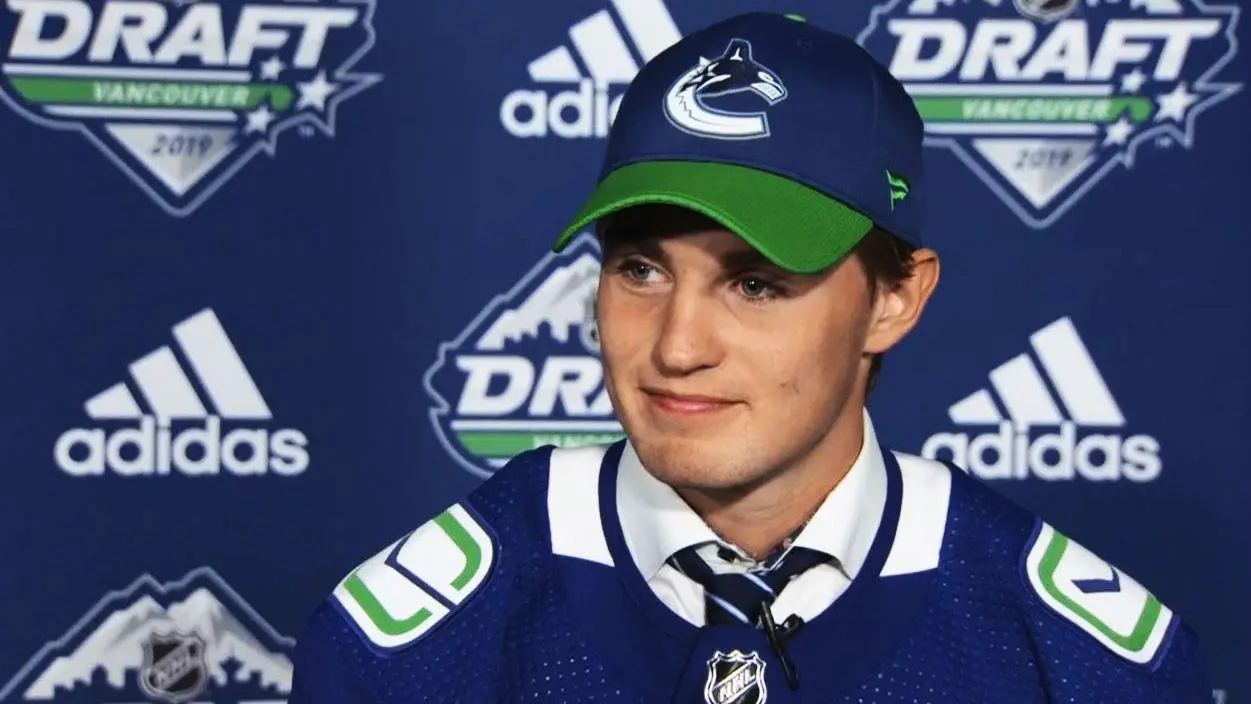
Since the NHL and NHLPA announced a joint return-to-play agreement that included a 56-game regular season and the advent of taxi squads, there’s been an interesting notion passing through the Vancouver fanbase and mediasphere. There’s an idea that, for the 2021 season, the Canucks’ top prospects — players like Nils Hoglander, Jack Rathbone, Mike DiPietro, and Kole Lind — would be better served by staying on the taxi squad, rather than being assigned to the AHL. The thinking goes that such young, promising, and unpolished products would benefit more from a truncated season of travelling and practicing with the NHL squad, and its coaching staff, than they would from game action in a downgraded AHL.
And to that, we’ve got no choice but to quote the great Allen Iverson.
“We’re sitting in here, and I’m supposed to be the franchise player, and we in here talking about practice? I mean, listen, we’re talking about practice, not a game, not a game, not a game, we talking about practice. Not a game. Not, not … Not the game that I go out there and die for and play every game like it’s my last. Not the game, but we’re talking about practice, man. I mean, how silly is that? … And we talking about practice.”
Indeed.
To be perfectly honest, it’s been surprising to see how, in a game that honours traditions, maxims, and cliches to a fault, the idea that nothing can substitute for real game experience has been abandoned.
The AHL has already announced its intention to start their season on February 5, 2021, and while there has been some talk of certain teams opting out, it appears that the Utica Comets are on board to return.
It is true that the AHL will be a far weaker league in 2021, with an average of four to six extra players per team up on the taxi squad instead of the farm club. But AHL players get called up or injured all the time, and every season ends with teams full of their own call-ups from the ECHL or lower. Does starting the season with those players missing make a difference? Of course.
But enough of a difference to no longer make the AHL a worthwhile development league? That’s highly questionable.
When it resumes play, the AHL will still be one of the best hockey leagues in the world. With taxi squad players gone, it may no longer be quite on par with the KHL or SHL, but it’ll still slot in easily as the fourth-best league on the planet, and that’s nothing to scoff at. In fact, if some AHL teams choose to opt-out for 2021, all of the players who would have been assigned to those rosters will have to be spread out among the other teams, which could easily result in the league being just as competitive in 2021 as it was in previous years.
Even if it is less competitive, it’ll still be a fine place for a prospect to develop, and a far better place than the press box. Do all the line rushes and play all the scrimmages you want, they’re still not the same thing as actual North American professional game action, and that’s what young players truly need to get ready for a career in the NHL.
Heck, there’s even a chance that an AHL that is less bloated by career minor leaguers might end up providing better development for young prospects than usual. Imagine an AHL in which top prospects immediately took up top-line positions and competed against those players they’re destined to one day face in the NHL, instead of the likes of Reid Boucher and Francis Perron.
Take Jack Rathbone, for example. Rathbone last played for the Harvard Crimson on March 7, 2020, and he’ll have gone more than ten months between games when the 2021 NHL season starts. If Rathbone is on the taxi squad, that ten months extends until enough injuries strike that Rathbone can get into action with the Canucks. And it won’t take long before he’s gone an entire calendar year without playing a real hockey game. For a player who is 21 years old and fresh out of the NCAA, that’s not just less-than-ideal, it’s potentially crippling to his development.
Contrast that with an AHL assignment, which would have Rathbone playing games within a month from now.
Or how about DiPietro, who last suited up on March 11, 2020? Imagine the organization’s top goaltending prospect going an entire year without facing shots in a real game situation. Without authentic traffic, without genuine randomness, and without any actual stakes. All the Ian Clark drills in the world can’t make up for that.
There is a case that Nils Hoglander, specifically, might be a candidate for the taxi squad because he’s already got plenty of game action in the SHL this season. However, this will also be Hoglander’s first year in North America. If the Canucks want him to eventually slide into a top-six role with the big club, wouldn’t it make more sense for him to get some experience playing that role in the AHL first? Or are they expecting him to leap right from the SHL to the NHL with only practices in between?
Some prospects, like Kole Lind, fall into an interesting middle-ground. Lind has already played two full seasons with the Comets — and an additional six games in 2017/18 — and progressed greatly during that time. There’s an argument that he’s ready for the next step, which would normally be a series of NHL call-ups. But in 2021, if the Canucks want to call Lind up, he’ll need to be on the taxi squad, which means he’s not playing games for the Comets in between. At age 22, is that what’s best for Lind, or is there not still more he can learn at the AHL level?
To answer this question, let’s consider the tragic case of Frankie Corrado.
Corrado was about the same age as Lind is now when the Canucks placed him on waivers and he was selected by the Toronto Maple Leafs. At the time, Corrado was clearly not ready for regular NHL duty, though he was able to get into 39 games with the lowly Leafs in 2015/16. Toronto improved over the next offseason, and Corrado found himself on the outside looking in for 2016/17, spending all but two games in the press box before finally, and mercifully, being waived and eventually traded.
Before that, however, Corrado was travelling and practicing with the Leafs, which meant he was under the tutelage of legendary (if disgraced) coach Mike Babcock. And yet, everyone in hockey agreed that Corrado’s pressbox exile was ruining his development. We’ll never know if Corrado ever had what it takes to carve out a long-term NHL career, but we do know that Babcock’s treatment of him certainly didn’t help, nor did going months on end without game action.
And now people want the likes of Hoglander, Rathbone, DiPietro, and Lind — each younger and more promising than Corrado — to experience the exact same thing? By choice? When there’s a perfectly valid alternate development option that has worked just fine for every other prospect to ever come through the system?
Madness.
Yes, there’s obviously some value in having the team’s top prospects work closely with Travis Green and his staff on a regular basis. In fact, that’s exactly why players like Hoglander and Rathbone may stick with the taxi squad until the AHL opens in February (although that option comes with its own quarantine-related complications). Consider, though, that Green and Co. also need to run an entire NHL squad, and they won’t have endless time to devote to one-on-one development.
But you know who will? Trent Cull and the coaching staff of the Utica Comets. Even better, developing prospects so that the NHL coaching staff doesn’t have to is exactly what the Canucks pay Cull to do! Put bluntly, the Canucks should continue to trust Cull with the development of their young players in 2021, and if they don’t — if they truly believe that their prospects would be better off sitting in the NHL pressbox than suiting up for the Comets — they should find another AHL coaching staff. Point blank.
And so, it’s perfectly acceptable for Hoglander, Rathbone, DiPietro, and Lind to stick around on the taxi squad from January 13 until February 5 for what we’ll call an extended training camp. But as soon as an assignment to the Utica Comets becomes an option, all four players should be sent down — unless they earn an actual spot in the Canucks’ lineup, rendering all this talk of press boxes moot.
Because, ultimately, playing the game is what the Canucks want these players to be able to do. We’re not talking about practice.
Recent articles from Stephan Roget

